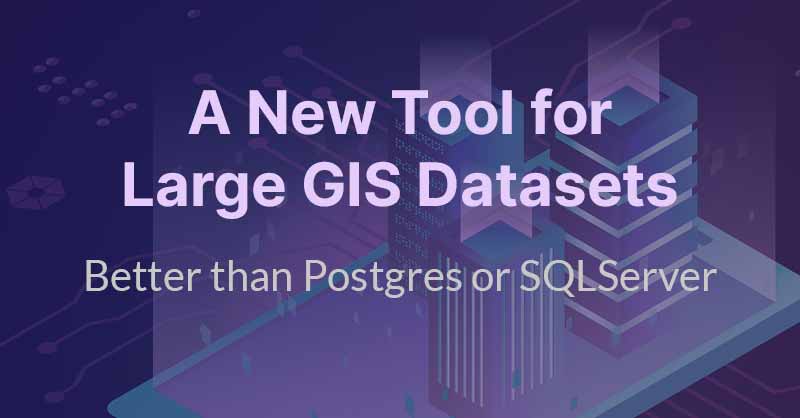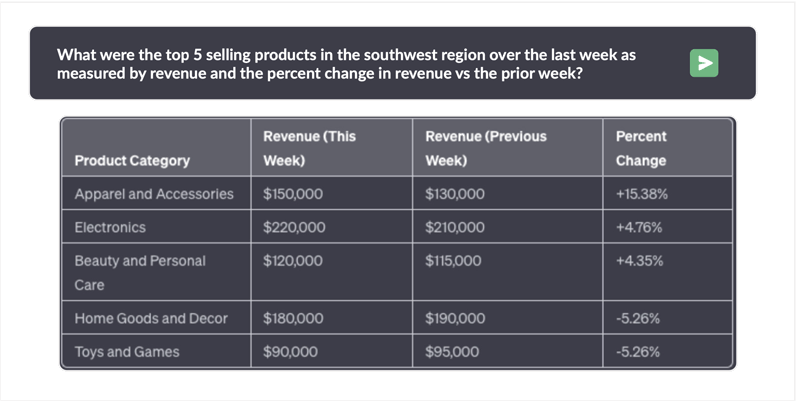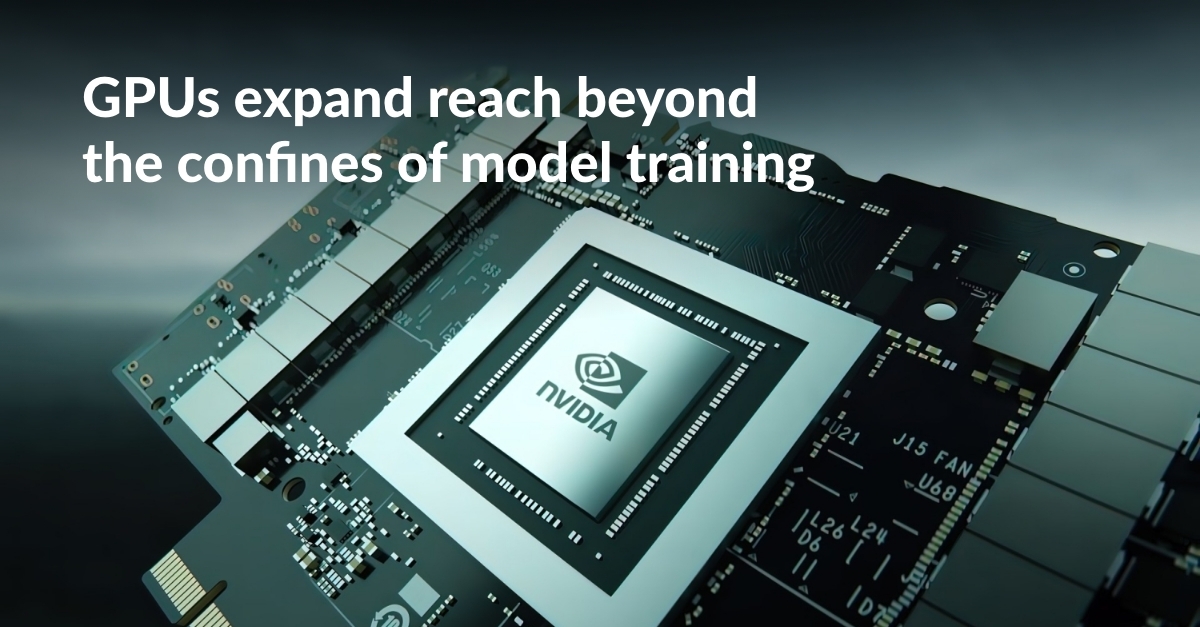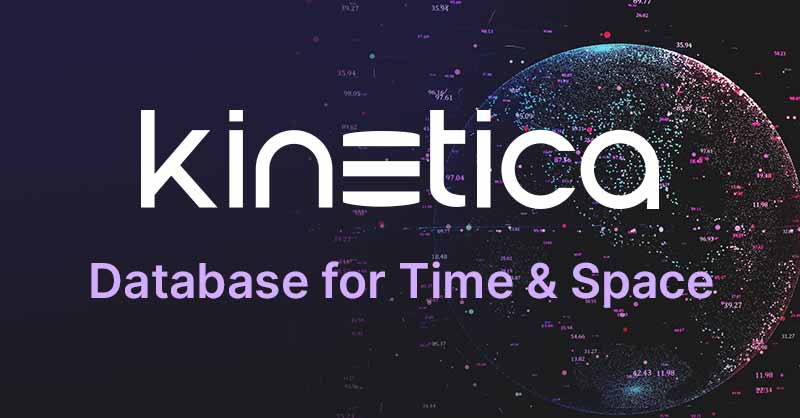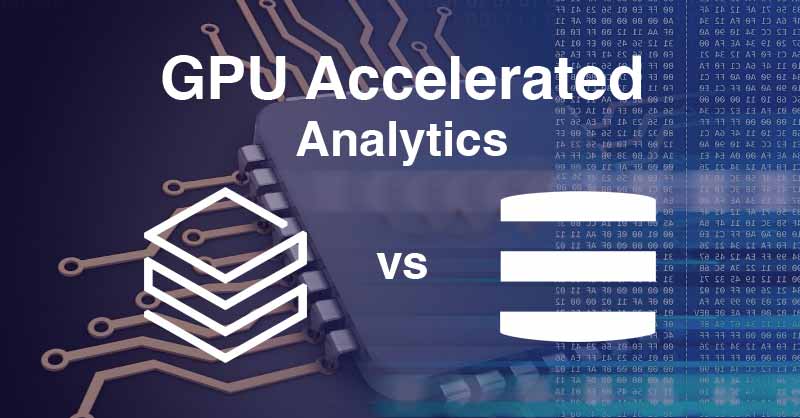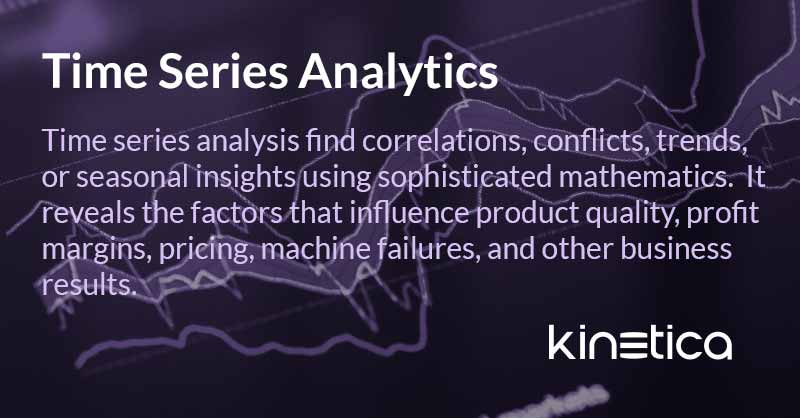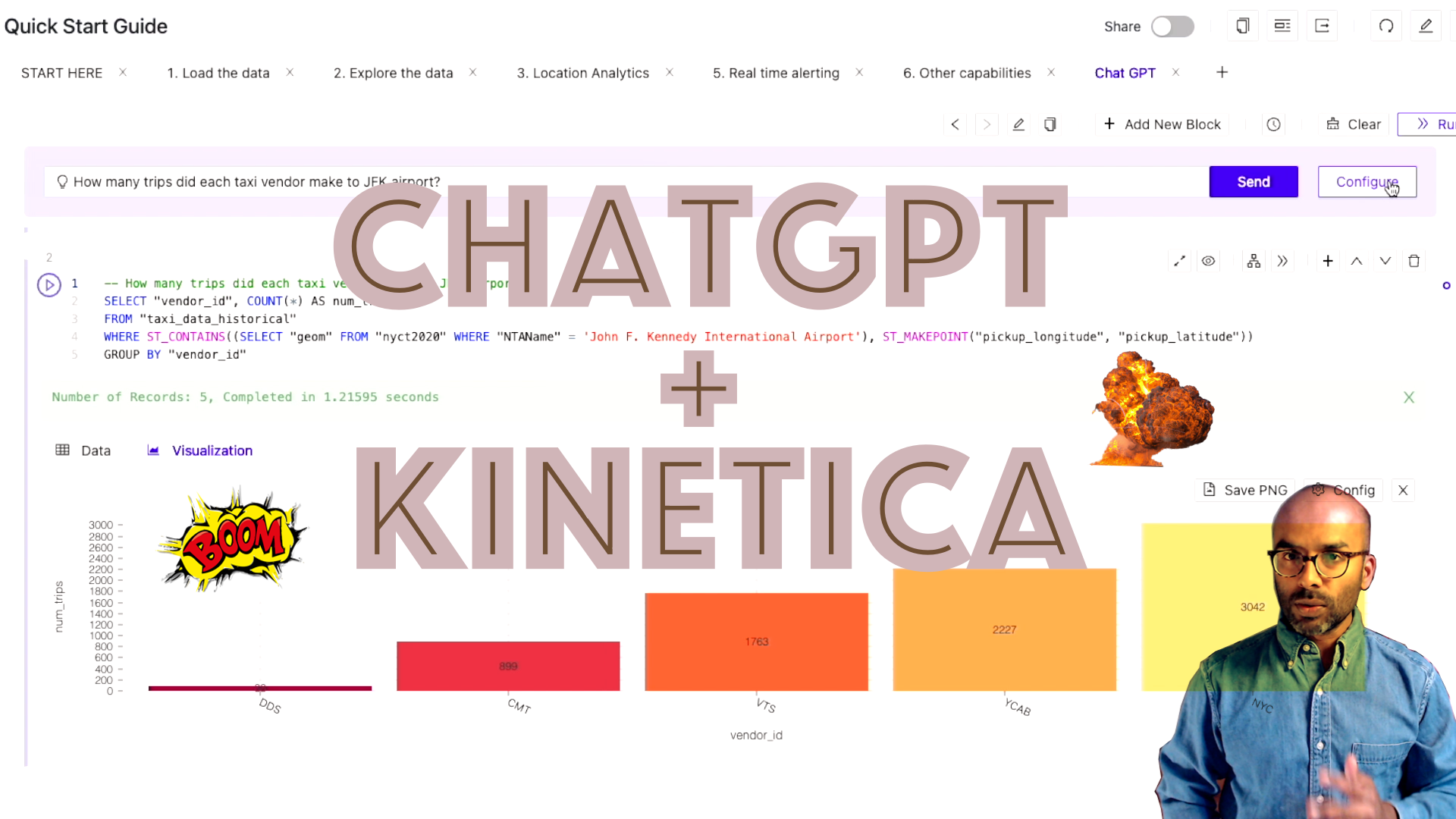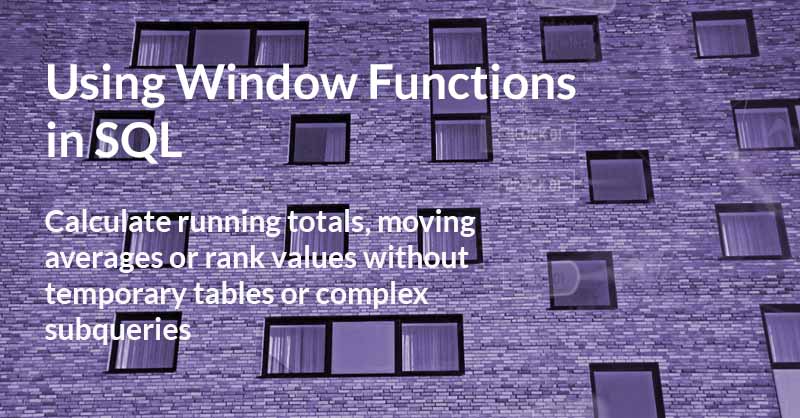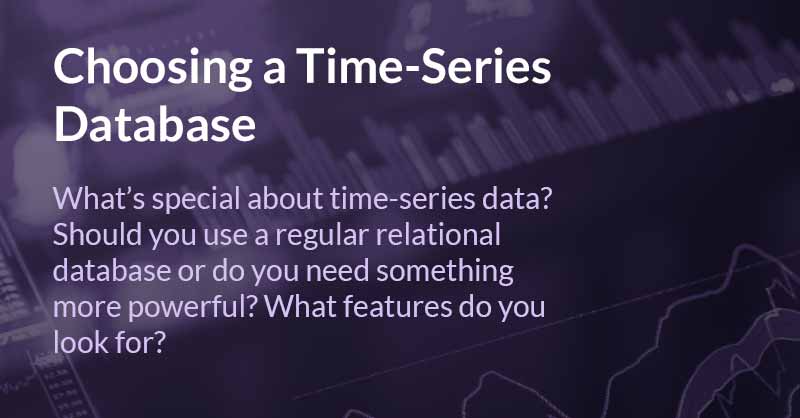Kinetica Blog
A New Tool for Large GIS Datasets
Today, many GIS users jump out of their systems and use Postgres or SQLServer to run spatial queries on larger datasets....
Ask Anything of Your Data
The desire to query enterprise data using natural language has been a long-standing aspiration....
NVIDIA GPUs: Not Just for Model Training Anymore
In the rapidly evolving landscape of data analytics and artificial intelligence, one technology has emerged as a game-changer: Graphics Processing Units (GPUs)....
Kinetica’s Contribution to Environmental Sustainability: Pioneering Energy Efficiency in the Data Center and in the Field
In an era marked by growing concerns about environmental sustainability, companies across industries are seeking innovative ways to reduce their carbon footprint and contribute positively to the environment....
Unlock New Insights with Kinetica and ArcGIS
Esri’s ArcGIS is renowned as a robust solution for creating, managing, and analyzing geospatial data....
GPU Accelerated Analytics – A Comparison of Databricks and Kinetica
GPUs have continued to rise in interest for organizations due to their unparalleled parallel processing power....
Time Series Analytics
There are useful timestamp functions in SQL, Python, and other languages. But, time series analysis is quite different....
Conversational Query with ChatGPT and Kinetica
Kinetica is a high-speed analytical database for big data. Its integration with ChatGPT allows you to havea sophisticated analytical conversation with your data in English no matter the scale....
Using Window Functions in SQL
Window functions allow us to perform calculations on a subset of rows in a table, rather than the entire table....
Choosing a Time-Series Database? Here’s what you need to know.
Time-series data usually refers to any series of data points that come with a timestamp....

